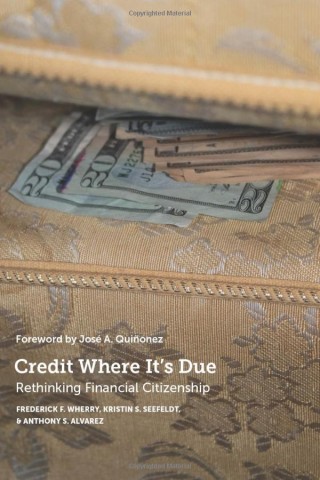Credit Where It's Due: Rethinking Financial Citizenship

Published 2019
An estimated 45 million adults in the U.S. lack a credit score at a time when credit invisibility can reduce one's ability to rent a home, find employment, or secure a mortgage or loan. As a result, individuals without credit--who are disproportionately African American and Latino--often lead separate and unequal financial lives. These authors argue that many people who are not recognized within the financial system engage in behaviors that indicate their credit worthiness. How might institutions acknowledge these practices and help these people emerge from the financial shadows? In Credit Where It's Due, the authors evaluate an innovative model of credit-building and advocate for a new understanding of financial citizenship, or participation in a financial system that fosters social belonging, dignity, and respect.

